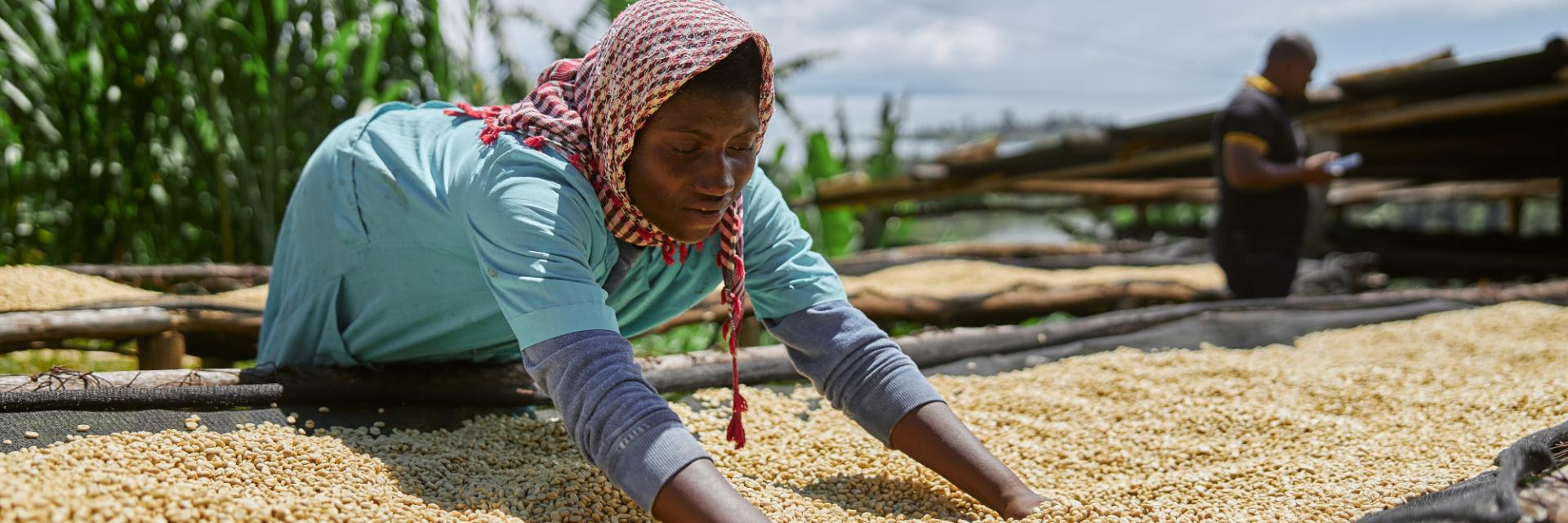Kampala, Uganda, 26 May 2025 (ECA) – When Amina Nalwoga boarded a plane to Saudi Arabia five years ago, she carried nothing but hope. A single mother of three, she had been promised steady work as a housemaid - enough to send her children to school and lift her family out of poverty.
But the dream quickly soured.
“They took my passport. I worked 18 hours a day. When I begged for the rest, they locked me in a room,” she recalls, her voice trembling. After two gruelling years, she returned to Uganda - exhausted, traumatized, and with little to show for her sacrifice.
Amina’s story is not unique. Across Africa, millions of women migrate to the Middle East as domestic workers, only to return home broken, indebted, or worse - in coffins.
Now, a bold new initiative led by the United Nations Economic Commission for Africa (ECA) and the African Union Commission (AUC) is fighting to rewrite this narrative, turning survivors into entrepreneurs, advocates, and leaders.
Every day, women across Africa embark on journeys in search of better opportunities. Some find work abroad, often as domestic workers in Gulf countries, only to return home facing economic hardship and reintegration struggles. However, a new initiative led by the Economic Commission for Africa (ECA) and the African Union Commission (AUC) seeks to change that narrative.
“The story should not end with their return,” says Matashane-Marite, Chief of the Gender Equality and Women’s Empowerment at the ECA. “We must ensure these women are survivors and thrive economically.”
The joint project, “International Migration in Africa: Shaping a Positive Narrative and Removing Barriers to Mobility,” focuses on empowering returnee migrant women in Uganda, Kenya, and Ethiopia, particularly those who worked in domestic roles.
Why This Matters Now?
With over 1 billion people migrating globally, including 281 million international migrants, women often face exploitation in low-paying, informal jobs. When they return home, many struggle to reintegrate into local economies.
“We need urgent action, but also data-driven policies,” says Matashane-Marite. The ECA has conducted assessments on returnee migrants from the Gulf Cooperation Council (GCC) countries, revealing a critical need for dignified reintegration programs.
The Economic Impact
Lawrence Egulu, Uganda’s Employment Services Commissioner, highlights the financial contributions of migrant workers: Women domestic workers contribute up to 1.5 billion Ugandan Shillings in remittances and 30 billion Ugandan Shillings annually in non-tax revenues.
Yet, many returnees lack pathways to sustainable livelihoods. “They need to repackage their skills to work within Africa,” Egulu urges, calling on international bodies like the ECA and AUC to reshape labour migration policies.
A Call for Rights-Based Reintegration
Kondwani Kamanga, Social Policy Officer at the AUC, emphasizes safe migration and sustainable reintegration: “We must prioritize human rights and economic self-sufficiency. Supporting returnees is not just about welfare - it is about Africa’s development.”
A Multi-Stakeholder Push for Change
From May 19-21, Uganda’s Ministry of Gender, Labour and Social Development, alongside the ECA and AUC, convened a working group to strategize around pathways towards creating economic empowerment programs for women returnees; policy reforms for safer migration and reintegration; and stronger collaboration between governments, NGOs, and UN agencies.
“This is just the beginning,” says Matashane-Marite. “When we invest in these women, we invest in stronger communities.”
Amina’s Second Chance
Today, with support from various stakeholders, Amina is part of a pilot cohort in Kampala. With vocational training, she learned tailoring - and with a micro-grant, she opened a small shop.
“Now, I employ two other returnees,” she says proudly. “We’re not victims anymore. We’re businesswomen.”
A Call to Action
The initiative’s success hinges on governments, employers, and communities stepping up. As Amina stitches a dress in her shop, she has a message for leaders:
“Don’t just pity us. Invest in us.”
Issued by:
Communications Section
Economic Commission for Africa
PO Box 3001
Addis Ababa
Ethiopia
Tel: +251 11 551 5826
E-mail: eca-info@un.org

